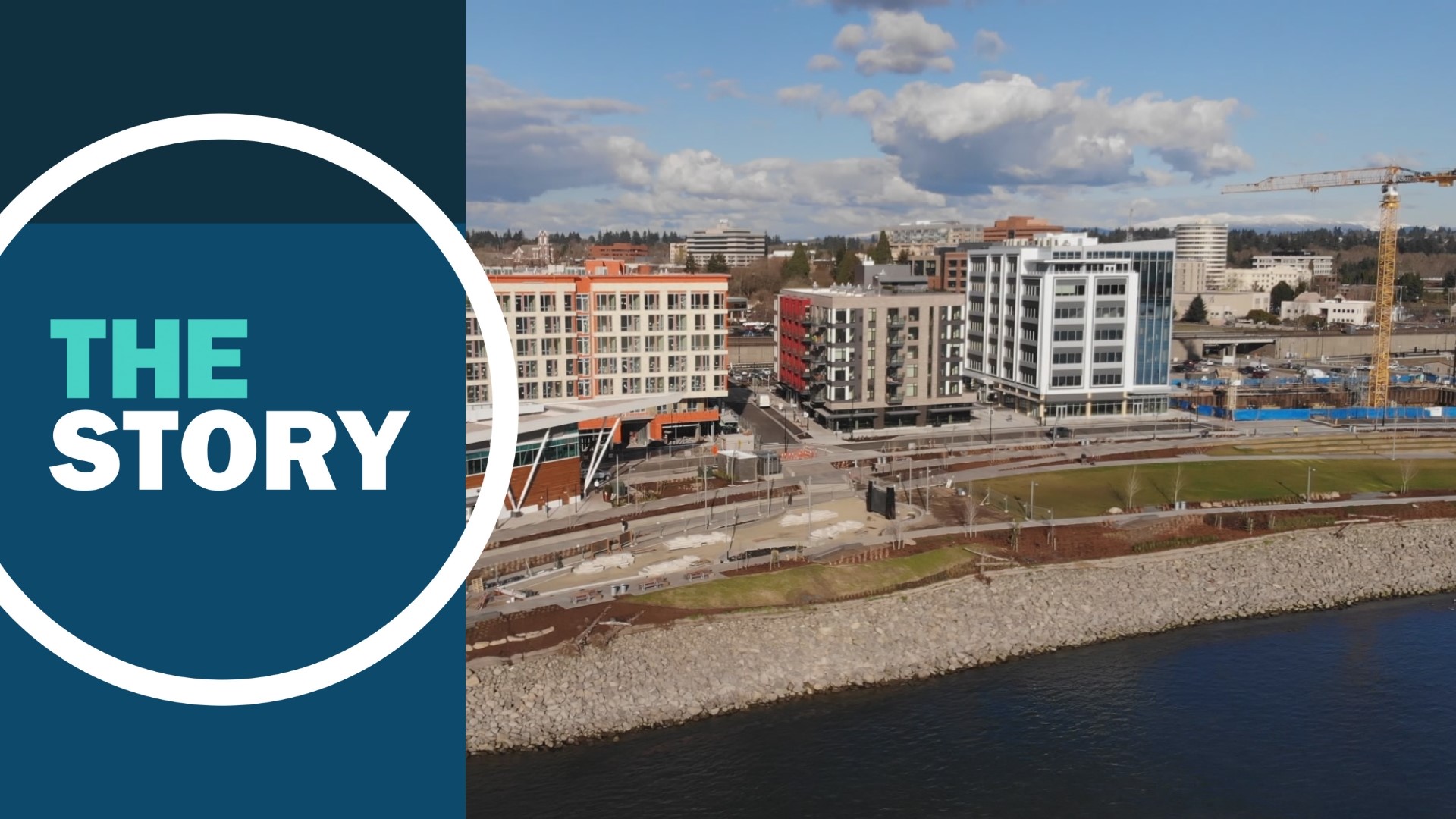VANCOUVER, Wash. — Once an industrial area, home to paper mills and contaminated water, the Vancouver Waterfront is now quite a destination. A park offers views of the Columbia River, with new restaurants, shopping and hotels opening at a rapid pace.
On a beautiful summer afternoon, the area was busy with families and people enjoying the outdoors. As time goes by, the walkways will see even more visitors as the city continues to grow.
On average, 14 new people move to Vancouver every day.
"People usually come to the Pacific Northwest for Portland and then discover Vancouver," said Giovanni Cafiso, a realtor with Inhabit Real Estate, who works in both cities. "What we've seen is this major shift of Vancouver becoming its own destination."


The median price for a home in Portland currently sits at about $550,000, averaging about $388 per square foot. In Vancouver, the median home price is about $495,000 at an average of $288 per square foot, according to statistics from realtor.com.
"What clients really like about Vancouver is the affordability. Things are generally less expensive here than they are in Portland. The second piece is the value. We see that you can get a lot more for your money here," said Cafiso.
"It's quieter," said Greg Cowan. He grew up in Northeast Portland and moved to Vancouver with his wife in 2016. Similar homes then cost half as much as in Portland, and the tax climate was better for when he eventually sold his business. But mostly, Cowan said, they moved for the quiet.
"We're lucky we have a little bit more property around us. We used to joke that when we come home from work its like our country house. The downtown has been improving, so the restaurant scene's been improving. There's less traffic. But basically just a little bit slower and quieter."
Another thing that's slow — the commute in and out of Portland. An average of 70,000 people a day make the drive across the Columbia River; it's one of the many reasons there is a push to build a new bridge.


With growth comes growing pains, which the city is working to address. Crime is up and the homeless crisis has gotten worse.
"Yes, we have people stealing catalytic converters. Yes, we have people stealing cars. Yes, we have homelessness. We have the same issues," said Vancouver Mayor Anne McEnerny-Ogle. "We might be solving it in a different manner. We have different funding opportunities that Oregon doesn't have. Our sales tax [revenue] went way up during pandemic. Everyone stayed home, didn't travel over the bridge, bought stuff and the sales tax went up. So we just have different opportunities that we use to solve our problems."
McEnerny-Ogle said the city is ready for even more growth, with 10,000 apartment and housing units in the construction pipeline, and plans for the city's largest-ever commercial building at 366,000 square feet.
Leaders are also working hard to turn the city into a cultural destination.
"We learned about Portland's [outdoor dining program] where restaurants can go out onto the sidewalk and onto the street to serve food. And so we adopted it and people love it. So we're learning from each other," McEnerny-Ogle said.
What's next? Clark County's growth plan includes where the city of Vancouver will one day expand. There are no timelines for when that would happen, but city planners are thinking about it. Vancouver has a welcoming attitude for developers and businesses, and the city is growing quickly.
"Five thousand people move here a year — a lot of them are from Multnomah County, but they're coming from elsewhere as well, attracted to quality schools, maybe a more friendly tax structure," said Rebecca Kennedy with the city of Vancouver. So we need to think about, really carefully, where those folks are going to go. How are they going to get around, where are they going to work? How are they going to access the things they need to prosper here?"

